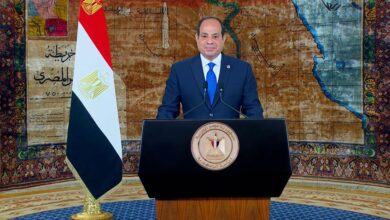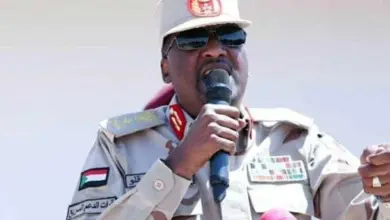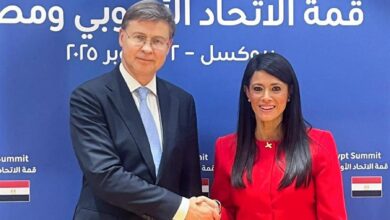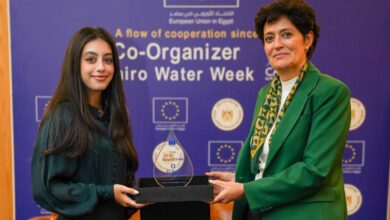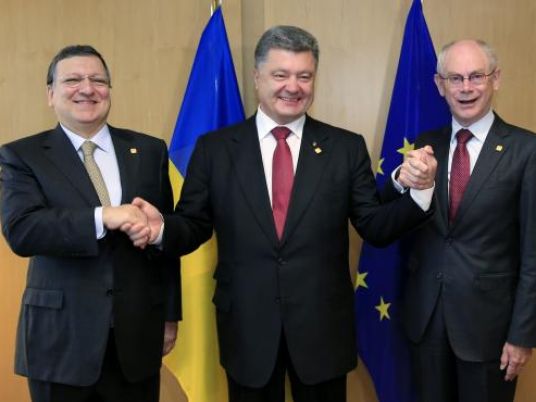
President Petro Poroshenko on Thursday ordered a temporary closure of Ukraine's porous border with Russia and voiced plans to apply for EU membership in 2020 as part of his ex-Soviet country's Westward shift.
A senior Ukrainian security source told AFP that the border security measures was designed to halt the alleged smuggling of weapons into the separatist east and would enter into force "soon".
The two steps underscore the extent of Kiev's alienation from its historic master and deal a further blow to Russian President Vladimir Putin's dream of folding Ukraine into a Kremlin-led alliance that could rival NATO and the European Union.
The plunge in the neighbours' relations comes in the wake of the February ouster in Kiev of a Moscow-backed leader and the Kremlin's subsequent annexation of Crimea and alleged backing of a bloody pro-Russian revolt.
But the announcements also threaten to further devastate Ukraine's imploding economy by halting trade between the mutually dependent nations and increasing the likelihood of Russia adopting retaliatory steps.
A decree published on the presidential website ordered the government "to settle… the issue of temporarily closing checkpoints on Ukraine's state border with the Russian Federation to cars, sea and pedestrian traffic."
It added that the 2,000-kilometer (1,200-mile) land frontier with Ukraine's giant northeastern neighbour may be closed "to other forms of traffic" if necessary.
The presidency said Poroshenko also told a meeting of judges that Ukraine would make a formal EU membership bid in 2020 that was made possible by this year's signing of a landmark political and economic association pact.
Poroshenko said his "Strategy 2020" plan "envisions 60 reforms and social programmes whose adoption will prepare Ukraine to apply for membership in the European Union in six years," his press service said.
'Very serious decision'
Ukraine has already infuriated Russia by announcing plans to seek future NATO membership — a step the Kremlin views as a direct national security threat.
Poroshenko reaffirmed those intentions on Thursday by tweeting that he had just "instructed the cabinet minister to revoke Ukraine's non-aligned (nation) status".
There was no immediate reaction to Poroshenko's various decisions from Moscow.
Both Kiev and its Western allies accuse Russia of sending elite forces and heavy weapons such as surface-to-air missiles into eastern Ukraine to help the separatist uprising that pro-Kremlin gunmen launched in April.
Russia denies the charges and dismisses NATO satellite imagery purporting to show its troops in Ukraine as fabrications designed to back the military alliance's expansion toward its border.
A senior security source said the border closure instructions were originally drafted by Ukraine's National Security and Defence Council in order to limit future cross-border travel to rail service and passenger flights.
"Air and rail traffic would be substantially easier to control than automobile and pedestrian traffic," the source told AFP.
"This is a very serious social decision, but one we were forced to adopt."
A spokesman for Ukraine's state border service said no additional security measures had yet been taken and that cars were still allowed to pass along the dozens of border crossings linking the two countries.
But it was no immediately clear how Ukraine intended to implement the measures along a series of crossings now controlled by insurgents in the separatist Donetsk and Lugansk regions.
Obama blasts Russian 'aggression'
The 48-year-old Ukrainian leader's instructions were issued only hours after US President Barack Obama delivered a hard-hitting address at the United Nations denouncing Russia's "aggression" in Europe.
Obama told a special session of the UN General Assembly that Russia was on the wrong side of history in Ukraine and facing still further isolation from the West.
But he also offered to lift punishing economic sanctions against Moscow if it threw its weight behind an unravelling peace deal with Kiev designed to end fighting that has killed more than 3,200 and forced 650,000 from their homes.
Obama promised to "lift our sanctions and welcome Russia's role in addressing common challenges" if the Kremlin "changes course".
The outstretched hand to Moscow came a day after pro-Russian guerrillas brushed off the terms of a peace deal under which they would receive limited self-rule but remain part of Ukraine.
The insurgents announced plans to set up their own parliaments and elect new leaders in self-organised 2 November polls.
Ukrainian lawmakers had last week backed Poroshenko's proposal for rebel-held parts of the Russian-speaking east to hold local council elections 7 December that would help restore law and order but not pursue any independence claims.

